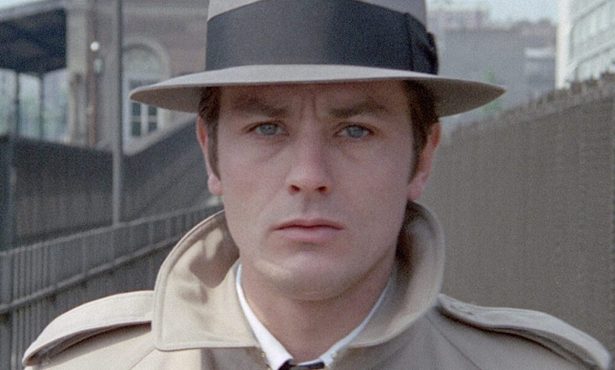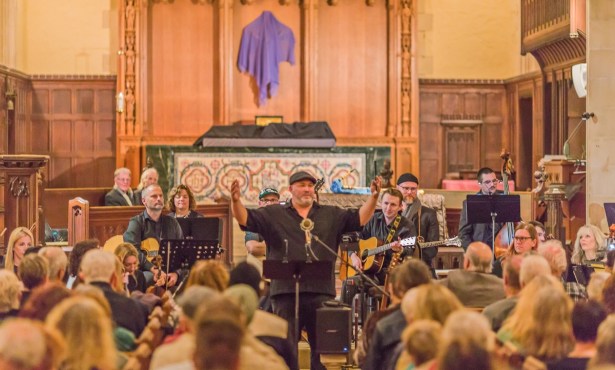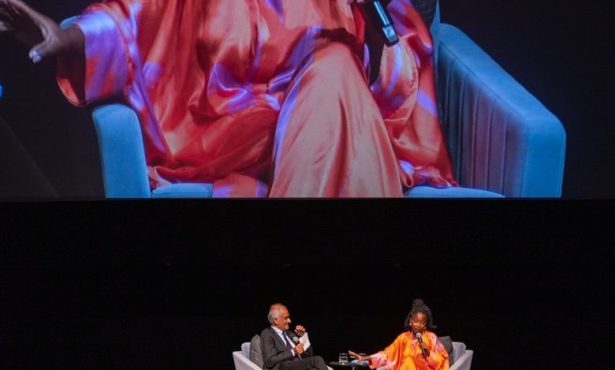Newsweek‘s Jonathan Alter to Speak in SB
Political Analyst Shares Notes on the 2008 Election
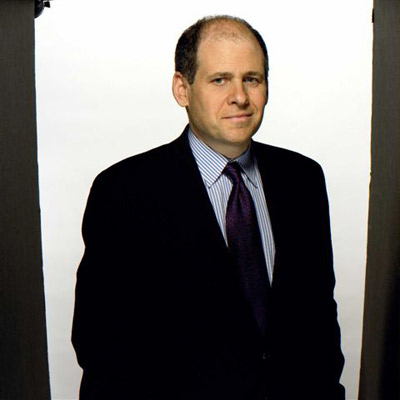
For decades Newsweek columnist Jonathan Alter has produced some of the most consistently intelligent and convincing political analysis to be found in the mainstream press. On Wednesday night, Alter will appear at UCSB’s Corwin Pavilion to deliver a lecture entitled “Election 2008: The Stakes,” in which he’ll discuss why the current presidential race is of such historic significance. Last weekend I spoke with Alter about the election, how the press has covered the election, and the future of the traditional media in a digital age. Alter has been an award-winning columnist and senior editor at Newsweek for more than two decades, and is also a regular contributor and analyst at NBC News. His new book is Between the Lines: A View Inside American Politics, People, and Culture, a collection of two decades of columns and articles written for Newsweek.
A problem for the press has always been when to call a spade a spade — how directly to say that this or that candidate is lying or making a questionable assertion. How has that played out in this race?
It was a bigger problem earlier in the race — the problem of what I call ‘Even-Stevenism.’ But in September many reporters recognized that they had a higher obligation to the truth. That was the point where John McCain’s ads were over-the-top inaccurate, and Obama’s were not, and the press identified that. More recently, Obama has also had some highly inaccurate ads, and the press has identified those as well. I think it’s easy to blame the press when things aren’t going the way you want. All candidates do it.
In a column in the early ’90s you wrote, “Politicians don’t seem to understand that the press is not a useful scapegoat. While railing against pundits may stir up anger and intensify support (especially among Republicans), it doesn’t drive voting behavior.” At this point, railing against the press seems to be a pretty central strategy of the McCain campaign, especially since the VP selection of Sarah Palin. Can you unpack that decision?
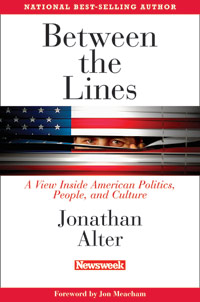
You would think they’d have some reason to think this is going to help them, that beating up on the New York Times is going to be helpful. But it’s not. It certainly hasn’t helped them in the polls. So you have to ask why, and I think it’s because they have a visceral candidate at the top of their ticket, and he reacts viscerally to old friends in the press now criticizing him. He thought he had charmed us permanently, and [therefore] we would turn a blind eye to whatever ridiculous thing he did in his campaign.
Do you think the days of charmed press coverage for McCain are over, looking beyond the election?
Well, if he wins it’ll be interesting to see if he goes back on his pledge to give a press conference every week. He pledged to be open to the press during the campaign, and he’s now shut down almost entirely. I think he’s operating largely out of a sense of grievance and pique that is unbecoming of a man I once greatly admired.
Is there any validity to the argument that there was an unfair, elitist response to Sarah Palin in the press?
Again, that was something [the McCain campaign] stoked for partisan advantage. Were there elitist things that were said on blogs or on television by one person or another? Sure. But overall, criticizing Sarah Palin for being unprepared to be president of the United States is legitimate, not elitist.
In the book you note that journalists enjoy writing about candidates who offer change, because it gives them a fresh narrative. How has that factored into the coverage of Obama and McCain, considering that both of them have campaigned on a change mantra?
Well, McCain only has recently. He made the same mistake Hillary Clinton did, which was that until the convention he campaigned on experience, and experience is a loser in politics. But to answer your question, a new face is always going to get more attention. That’s why this week we’re [Newsweek] doing our fourth Sarah Palin cover. We did many Barack Obama covers. Does the media have a special yen for Obama and Palin? No. But they’re fresh faces, and to be honest, fresh faces sell magazines, newspapers, and television shows, until they’re not fresh anymore.
So there’s synergy between what the public wants and what the press is providing when it comes to a fresh narrative? You don’t think the public could go with experience but the press likes to go with the fresh narrative and so that shapes public opinion, or the reverse?
I think it’s the reverse. News organizations are businesses, and right now they’re strapped for money, and they responded, for example, to the vice presidential nomination with a fairly insatiable appetite for all things Palin. In many ways we respond to what we think our audience wants. That’s a much more powerful force than any so-called media bias.
Included in the book is a column from ’92 about how the “New Media,” which was then CNN, C-Span, and infotainment shows like Larry King Live, was diluting the power of the traditional mainstream press. You also wrote that the New Media was less elitist and more democratic, but also less analytical. It’s a fascinating observation to look at today. What has shifted since then?
Since I wrote that you’ve had a complete fragmentation of the old media system, and a democratization that continues to be a positive thing. But it also has a Tower of Babel effect, where there’s now a tremendous amount of noise, but maybe not much more light. It’s a classic good news/bad news thing. The good news is that the old media monopolies have been broken, and people have many, many different choices in many different forms of media that didn’t exist in 1992. And it’s in your control. You can access it on your terms. The bad news is that talk is cheap and reporting is expensive. Also, the news cycle is so fast now that it can be hard for important stories to get a purchase. Another thing: Yesterday I had a long interview with Joe Biden, and we talked about the decline of spontaneity in politics. Politicians feel like they can’t say anything anymore because they’re going to get hammered by somebody. That’s not good.
You say talk is cheap and reporting is expensive. It seems like one of the biggest problems of New Media and online journalism, or really online commentary, is that if the New York Times can’t afford to maintain foreign bureaus all over the world, where do the blogs pick up their information?
That’s a huge problem. A bureau in Baghdad costs a couple million dollars. Anybody can sit at home in his or her PJs blogging about it. What ends up happening is that you have thousands of people who re-chew the news, but fewer and fewer to go out and dig it up. That’s not a good development, and somehow we need to have a new economic model that supports reporting. We have to make sure that younger reporters learn how to go out and do reporting.
[Media impresario] Arianna Huffington argues that in the future everything’s going to be online, and it’s all going to be opinion driven, because that’s what people want. Do you think that’s true, and do you agree with her that that would be a positive development?
I don’t. Arianna, who’s a friend of mine, is European, and that’s a more European model of journalism, where they have a party press. That’s the way it was at the dawn of the American republic too. We had party presses, and we had a lot of bloggers, who back then were called pamphleteers. The development in the early 20th century of a more objective and disinterested press was very important in terms of establishing credibility, in establishing a set of facts that people could agree on. Readers and viewers want to maintain a tradition of great news reporting — it’s very important. So I hope Arianna is wrong.
Are you optimistic that an economic model will be discovered that allows for that?
Yes. One of the things we learned during the 20th century is that readers like quality. So the most successful news organizations of the 20th century, and particularly the late 20th century, were quality news organizations: the New York Times, Washington Post, Los Angeles Times, Time, Newsweek, CBS News. There is always going to be some appetite for real information. I suspect that that interview I did with Joe Biden is going to get a lot more bounce in terms of people’s interest in what I wrote than some piece of punditry, however well-crafted, that I might have come up with. In the final analysis, reporting will always drive the news business, and people will come along and find a way to make money off of it. In the short term I’m very worried about dead-tree media and how they’re going to develop financially viable Web sites. But there’s a big difference between saying that and saying that conventional journalism is not going to be around.
In the book, you write, “The only certainty of American politics is that its quantum physics will continue to confound us.” You also write, “The more we handicap, the more handicapped we are.” A few years ago, a University of California statistician named Philip Tetlock published the results of a 20-year study of professional punditry. He found that on average, a random statistical formula would be better than political experts at predicting the political future. He also found that the greater a pundit’s self-confidence and celebrity, the more frequently he or she was wrong. So, final question: Does anyone really know what the hell is going is on?
[Laughs] You know, people come up to me all the time and ask, “What’s gonna happen?” and when I say I don’t know, they’re not satisfied. And because they don’t like that, I now say I’ll bet five dollars on Obama, but not 10 dollars. We’re forced to come up with prognostications which are frequently wrong, but which the public has been conditioned to expect from us. It’s not what we do well. The reason Mikey Kaus and I started Conventional Wisdom Watch for Newsweek 20 years ago [a popular Newsweek feature] was to try to make fun of how wrong the conventional wisdom frequently is. And political predictions are no more accurate than predicting the stock market, or anything else. So the public should ask us to do what we were originally supposed to do, which is find out what happened, not speculate about what will happen.
4•1•1
Jonathan Alter will give a free talk, “Election 2008: The Stakes,” at UCSB’s Corwin Pavilion on Wednesday, October 22, at 8 p.m. The event is sponsored by the Walter H. Capps Center for the Study of Ethics, Religion, and Public Life. For more information, visit cappscenter.ucsb.edu or call 805-893-2317.

